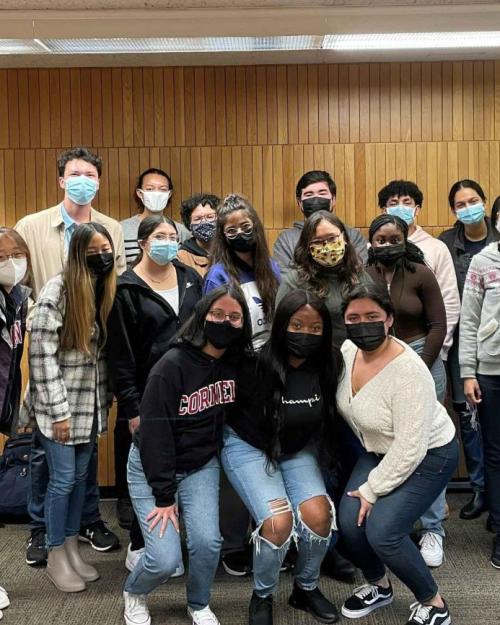A new organization, founded by students in the College of Arts & Sciences, offers support and guidance for students who want to translate their research at Cornell into projects that will benefit their hometowns.
Cornell Origins Urban Life Development (COULD) was founded by seniors Eric Kohut and Erika Gonzalez under the guidance of Professor Pilar Parra and with support from the David M. Einhorn Center for Community Engagement. Both Kohut and Gonzalez are biological sciences majors in A&S.
“It’s a privilege to go to Cornell and have all of these resources around us,” said Kohut, who has already started an organization with Gonzalez, Hudson Origin, that connects people in his New Jersey hometown with mental health information. “For a lot of students here, the research they are doing here is tied to their family, friends and neighborhoods.”
With Hudson Origin as its first project, COULD now supports two others — RespectAbility, which plans to offer workshops in Tompkins County that help people with disabilities succeed in the workforce; and Bronx Health, an online platform that helps combat obesity and diabetes by giving people information about healthy, affordable local restaurants, local food options, recipes and fitness tracking.
“COULD is helpful because it provides an environment for people who want to start projects to connect with each other,” said Noor Qureshi ’22, a biological sciences major in A&S who is leading the Tompkins County project.
Mark Abdelmassih ’23 and Madelyn Leon ‘23, leaders of Bronx Health, said they considered the most pressing problems affecting their community and decided to focus their project on health.
“I’ve had many family members suffer from diabetes, so this seemed like one of the biggest issues we could tackle and make a change,” said Abdelmassih, also a biological sciences major.
“It’s hard to find healthy food, especially when you’re low-income and have a busy schedule, working shifts,” said Leon, who’s studying information science and sociology. “Our research has shown us the high correlation between obesity, diabetes and income.”
Kohut said COULD provides student mentorship, research collaborations and personalized guidance in creating translational projects. They hope to support two more projects in the spring semester and keep adding students to their group, Kohut said.
“Students have really resonated with the idea of using their academics in a way that helps people they care about and they’re really excited to use their passions to collaborate with others,” he said.




